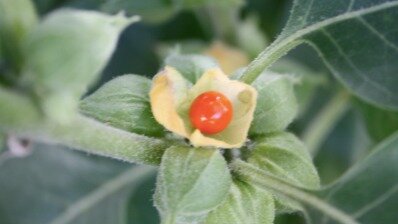what herbs should you take during winter: my two favorite adaptogens
It’s true...January does seem long. I just keep thinking it’s February, but then remember “nope, still January.”
So, it’s totally still appropriate to discuss a few tips for winter health and immunity. In Eastern medicine there is an emphasis on living in accordance with the seasons. Winter is yin in nature. Meaning, days are shorter and chillier. We may crave warmer foods and the body’s metabolism may slow. Seasonal fruits are limited compared to the abundance of spring and summer, so we end up eating heavier foods. Forms of exercise may shift or decrease as we stay indoors opting to bundle under a blanket. These are all yin things.
So what am I getting at you may ask?
WINTER IS A TIME TO LEAN IN TO THE YIN.
Now, how do we do this...you may ask?
If you’re like me and aimlessly peruse the aisles of health-food stores you may notice the natural foods world is exploding with products touting ADAPTOGENS. These are THE yin food/herb. PERFECT for winter (and not so great to take year round like they often promote, but that’s the subject of another letter). Adaptogens support the body to deal with stress. Like a good friend, chilling you out when you’re stressin and energizing you when you’re draggin. In eastern medicine adaptogens “tonify” the body. They build-up/increase. In winter we are often spending less energy, so this is a great time to tonify our energy stores, boost immunity, soothe our nervous systems and nourish our wellbeing by using Yin herbs. It's a time to essentially let the reservoir of our internal energy refill so we can then spring-forward into...well...Spring.
(A note about stress. There are many forms of stress. It can come from our modern day lifestyles, over-work, over-exertion, immune stress, interpersonal stress, just to name a few. Historically, cultures may have used adaptogens to help mitigate the stress of physical exertion. famine or drought. Interesting to think about, right?!)
Two Of My Favorite Adaptogens!

ASHWAGHANDA:
AKA Indian Winter Cherry. Harvested in fall to be eaten in winter. The name translates to “strength of a horse.” A powerful nerve tonic gives a boost during the day or can be taken at night to promote sleep. Often used for adrenal health and in Chinese Medicine is known as a yang tonic. Great for immunity, stamina and structural strength. When I was in grad school and worked as a caterer at night I went through a period of time where I experienced fatigue and back pain. I began to carry a tincture of Ashwagandha around in my bag. Whenever I had a long day or noticed my back becoming tired and weak I would take a dropperful of the tincture. It was my experience I felt less pain and more energized each time. Now this is a personal anecdotal experience, but I can say I believe in the power of adaptogens. Ashwagandha is also a great herb for most constitutions and body types. 500 mg is usually a good dose, and great after meals.

TULSI:
AKA Holy Basil is a powerhouse adaptogen. The Queen of herbs in Ayurveda. Similar to Ashwaghanda, Tulsi mitigates the effects of stress. Tulsi normalizes blood glucose, has antidepressant properties, is anti-viral/anti-bacterial/anti-fungal. The list of how it addresses our physical, mental and spiritual health is amazing. I drink tulsi tea often and encourage people to sip it throughout the day. This is a great alternative to caffeinated teas. Also great for most constitutions and body types.
Below is a link to a review of scientific studies delineating Tulsi's powerful attributes and how it is used in traditional Hindu culture. Really a beautiful read. This analysis was funded by Organic India, a company who makes a line of Tulsi teas. I love them! This company works with small scale organic farmers in India to supply the tulsi used for their teas.
www.ncbi.nlm.nih.gov/pmc/articles/PMC4296439/
That's just some quick information about a couple of my favorite adaptogens. They're favorites because they're powerful, yet mild enough for MOST people to benefit from.
So while we're still in this time of winter explore the world of adaptogens if you're curious. We'll talk more about how to work with these herbs as the seasons shift and we shift from a time of "tonifying" to "cleansing."
Any questions about ADAPTOGENS?
Any questions about anything? Any musings? Or just want to share?...by all means say hello!
